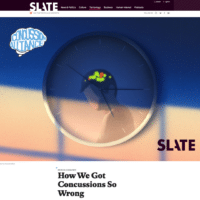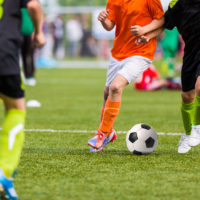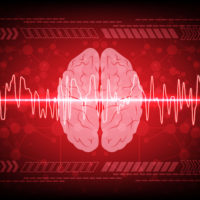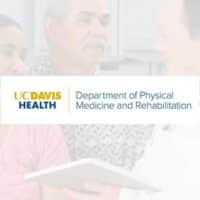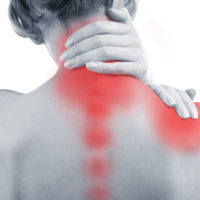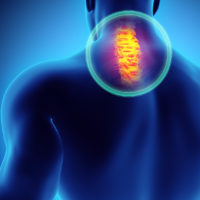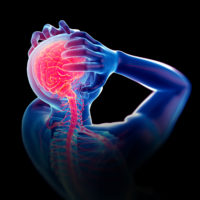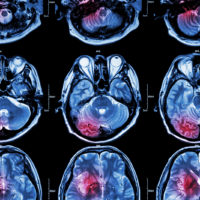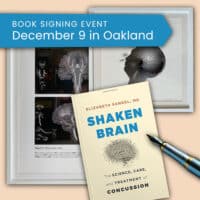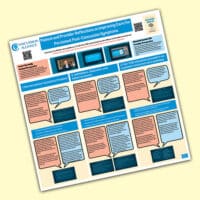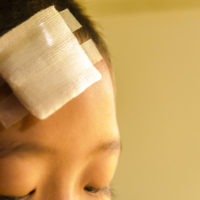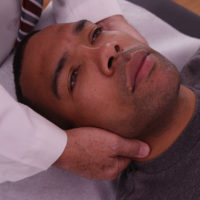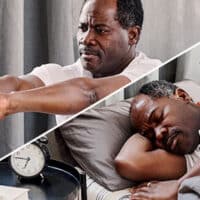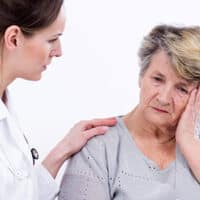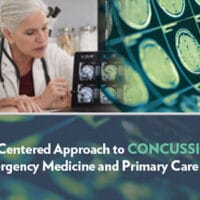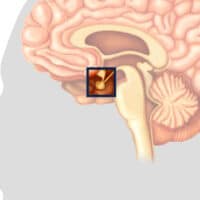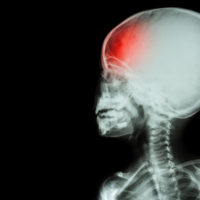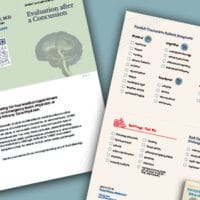Archive
Brain Injury Diagnosis & Treatment
How are traumatic brain injuries diagnosed, and what treatment is recommended for concussions and other brain injuries?
Concussion Alliance Co-Founders Interviewed for Slate Article
More and more journalists are writing about concussion, in many cases because they have had a concussion themselves or have friends or relatives who have experienced one. In March, 2024, Isobel Whitcomb interviewed Concussion Alliance co-founders Conor Gormally and Malayka Gormally for an article in Slate. It is concerning that bad medical advice (“just rest”) is still being given to concussion patients as is clear in Whitcomb’s story.
Concussion Care Highlighted in The Atlantic and Bloomberg News
I collaborated recently with Conor Gormally of Concussion Alliance to advocate for individualized and comprehensive concussion care in mainstream news stories with journalists who recounted personal stories of concussion. Here’s what The Atlantic and Bloomberg published.
The 6th International Consensus Statement on Concussion in Sport–What’s New?
The Statement summarizes scientific research and provides some updated recommendations for athletes at risk for concussions. But, it’s been mired in controversy regarding the strict criteria governing which research was included. Read Dr. Sandel’s insights into the process and conclusions.
What Is Cognitive Rehabilitation Therapy?
Cognitive Rehabilitation Therapy (CRT) is an evidence-based approach to addressing multiple cognitive impairments caused by a traumatic brain injury. Restorative CRT strengthens cognitive abilities, and compensatory CRT provides strategies to reduce the impact of deficits.
Patient-Centered Concussion Care
Presenting to the physical medicine and rehabilitation (PM&R) residents at the UC Davis School of Medicine sparked a lively exchange about patient-centered concussion care. Learn more about the challenges and possibilities for transforming concussion care.
Three Alternative Treatment Modalities to Ease Brain Injury Associated Symptoms
Conventional treatments like medications may not help symptoms after a brain injury. Complementary or alternative treatments may help.
Check the Neck after a Brain Injury
Whiplash and cervical strain occurs when a person’s head and neck are forced back and forth, injuring soft tissues of the neck. They are common after brain injuries.
Evaluating and Treating Headaches After Brain Injury
Headaches are extremely common after a traumatic brain injury, but there are various treatments that vary depending on the phenotype or cause.
Post-Traumatic Headaches: Not Just One Type or Treatment
Headaches must be evaluated with a comprehensive history and physical examination. There are many options for treatment, but diagnosis has to be the first step.
Brain Imaging after an Injury
CT and MRI scans are the most common imaging modalities to evaluate people with traumatic brain injury, but advanced imaging methods are more promising for diagnosis and prognosis. However, interpretations of findings can vary.
Treatment and Prognosis after a Concussion
Learn about treatments for post-concussion symptoms—including medication, various rehabilitation therapies, neuropsychology, and potentially some complementary therapies—as well as factors related to longer concussion recovery times.
Meet Dr. Sandel at the Book Signing Event on December 9
Join Dr. Sandel in Oakland on Friday, December 9 from 4:30-6:30pm for a “Shaken Brain” book signing event. Presented by Kim Cole Real Estate.
Patient and Provider Perspectives on Improving Care for Post-Concussion Symptoms
This poster, created for the International Brain Injury Conference in New York in Sept 2022, offers various perspectives on how to improve concussion care. Attached are a reformatted poster presentation and related webinar links.
Why is “Post-Concussion Syndrome” Controversial?
We do not yet have a clear understanding of what happens in the brain immediately after a concussion and over the days and months that follow, especially for those patients whose symptoms persist. Post-concussion symptom rates vary greatly among research studies, likely because the populations studied are diverse and so are the diagnostic criteria and timing of assessments. The wide variation in symptom rates highlights the fact that there is a lot we still don’t know about concussions.
Top Causes of Concussion in Children and Adolescents
When we think of “youth” and “concussion,” the first thing that likely comes to mind is a teenager engaging in a high-risk activity such as football, soccer, or snowboarding. But not all youth brain injury results from these risky activities. Of the millions of concussions reported by emergency rooms every year, figures put concussions related to sports and recreation at just 30% – so 70% of concussions result from other causes.
Is Concussion a Diagnosis?
Clinicians like me say that concussion requires a clinical diagnosis based on the history of what happened to produce the symptoms. However, because these same symptoms appear in other conditions, and we don’t have reliable biomarkers, diagnosing a concussion can sometimes be a challenge. The lingering effects of a mild brain injury can also continue as a chronic condition, often referred to as post-concussion syndrome or persistent post-concussion symptoms, that still require treatment.
3 Things to Do to Allow Your Brain to Recover More Quickly After Brain Injury
After a concussion, people need good sleep patterns, and they also need to resume activity and exercise to aid recovery. Activities with concussion risk should be avoided, however.
Traumatic Brain Injury and the Elderly
Traumatic brain injury (TBI) is a leading cause of death and disability among seniors. The cause is often a fall or a motor vehicle accident, but head trauma due to elder abuse or neglect must always be considered, too. Older adults usually have other health conditions and sometimes dementia, so a diagnosis of a TBI can be challenging. The brains of elderly people are also more vulnerable to injury, and many older adults are on anticoagulant medications that put them at risk of brain bleeds. If elder abuse or neglect is suspected, mandatory reporting laws must be followed by certain professionals and even ordinary citizens in some states of the United States.
Mood Disorders Such as Depression Can Complicate a Brain Injury
A traumatic brain injury can be associated with depression or another mood disorder, possibly because of the disruption of brain chemicals.
A Patient-Centered Approach to Concussion Care: CME & Webinar
Elizabeth Sandel, MD, a physiatrist and brain injury medicine physician, and Conor Gormally, co-founder of Concussion Alliance — a young man who has experienced several concussions — present a patient-centered care approach for emergency medicine and primary care physicians.
How Does Brain Trauma Affect Brain Hormones?
Evaluating and treating people with hormonal deficiencies after traumatic brain injury (TBI) can be very challenging. Learn about the screening and treatment of pituitary deficiencies that may occur in both the acute and chronic stages after a concussion or other TBI.
Will My Child Experience Long-Term Consequences from a Concussion or other Brain Injury?
Although most children recover fully after a single concussion, others have long-term effects. Of course, prevention is the best strategy, but if a concussion occurs, parents must understand a brain injury has occurred.
How Long Will It Take for My Child to Recover from a Concussion?
Children can experience a range of symptoms after concussion. They require individualized treatments and strategies for returning to activities and to school. A physician with training and experience in treating concussions must provide early interventions and follow-up, regardless of how long recovery takes.
Self-Reported Concussion Symptoms are Key to Evaluation & Diagnosis
To properly diagnose a concussion and devise a treatment plan requires a thorough physician evaluation, a symptom checklist or an interview, or both, followed by a comprehensive cognitive and physical examination. Download a pocket guide that helps patients prepare for being evaluated.
Keep up to date
Get updates on the latest in concussion, brain health, and science-related tools from Dr. Elizabeth Sandel, M.D.
By clicking SIGN UP, you agree to receive emails from Dr. Sandel and agree to our terms of use and privacy policy.
